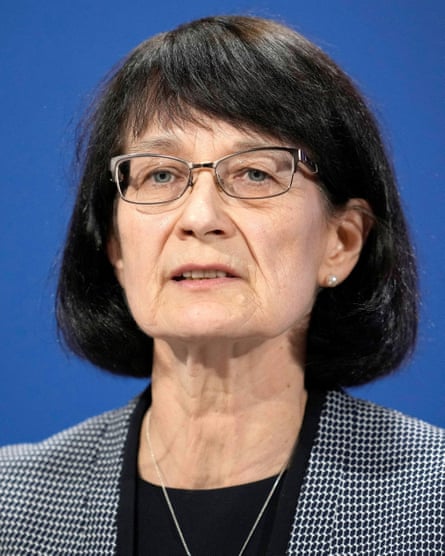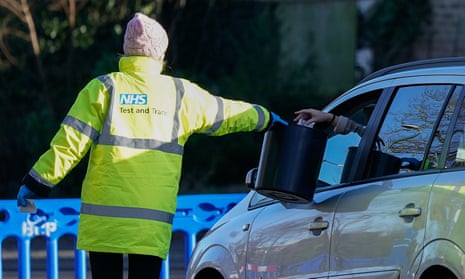The head of the UK Health Security Agency raised concerns about low-paid workers being disadvantaged by changes to the Covid testing regime in England, as they would still need a PCR test to access financial support for isolation, a leaked internal memo shows.
The memo from Dame Jenny Harries, the chief executive of the UKHSA, also highlighted a greater risk of false negatives for those on lower incomes forced to go to a testing centre to ensure they received the £500 Covid test-and-trace support payments.
Under the changes made this week, most people who are asymptomatic can rely on positive lateral flow results to self-isolate, without having to take a confirmatory PCR test. But those seeking £500 Covid support payments for isolation will still need to get PCR tests because of government concerns about potential fraudulent claims if people are allowed to claim the support payments based on self-reported lateral flows.

In the note written before Christmas, Harries flagged concerns that low-paid workers seeking access to financial support payments would have a higher chance of falsely being told they were negative for Covid.
Harries wrote: “In higher prevalence periods, the abandonment of confirmatory PCR would mean that the people most likely to receive a false negative and therefore potentially become ill and then seek hospital care later and therefore more likely to die would be more likely to be those from lower socioeconomic groups who also have higher risk of underlying health conditions as additional risk factors.”
The government made the changes this week, partly to ease pressure on the PCR testing system while Covid case numbers are at an unprecedented level, and to allow people to start the clock on isolation periods earlier.
However, there were also concerns among public health officials that a confirmatory PCR was counterproductive because of the risks of false negatives. Some experts have previously highlighted that there is still a reasonable chance of a person having Covid if they have a positive lateral flow followed by a negative PCR, with the PCR missing a positive result around one in 20 times.
It is understood that data prepared for the health secretary, Sajid Javid, this month contained estimates that about 9,000 out of 195,000 confirmatory PCR tests taken in November in England were false negatives. This suggested that 45% of all 20,000 negative PCR results after a positive lateral flow result were false.
Because of concerns about potentially fraudulent claims, the decision was made by the government to continue to ask for a confirmatory PCR from those who want to claim a test-and-trace support payment, currently worth £500 per isolation.
However, the UKHSA flagged worries that this put lower socioeconomic groups at higher risk of false negatives than the general population, particularly when there is high prevalence of Covid in the community.
This means those people are potentially being wrongly told not to isolate and not getting support payments, and are at risk of false reassurance and passing it on to contacts.
In Wales, support payments are given out for self-reported tests without the need for a confirmatory PCR.
It is difficult to quantify the number of people affected, but the House of Commons Library found about 370,000 support payments had been made by November. Around 1 million applications are likely to have have been made because, based on previous data, the success rate is estimated to be about a third. The level of payments is also likely to have risen again substantially during the latest wave of Covid.
The UKHSA declined to comment on the leaked memo.
